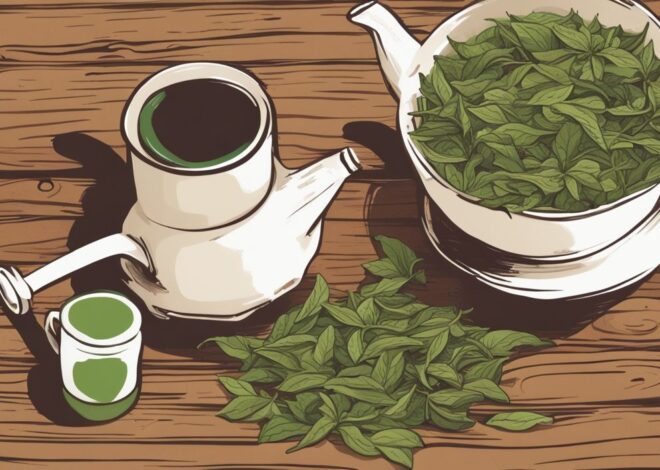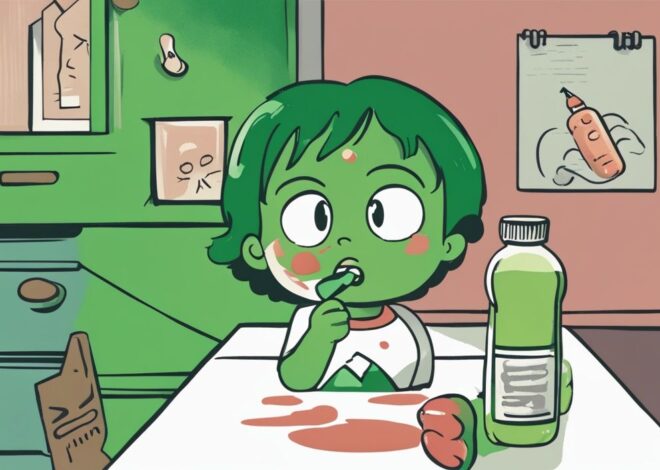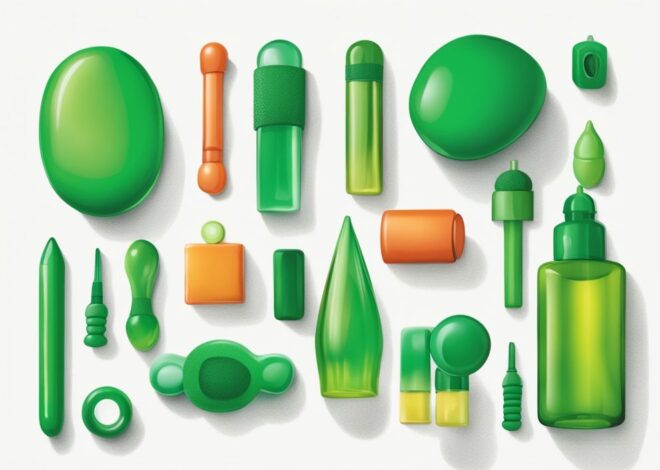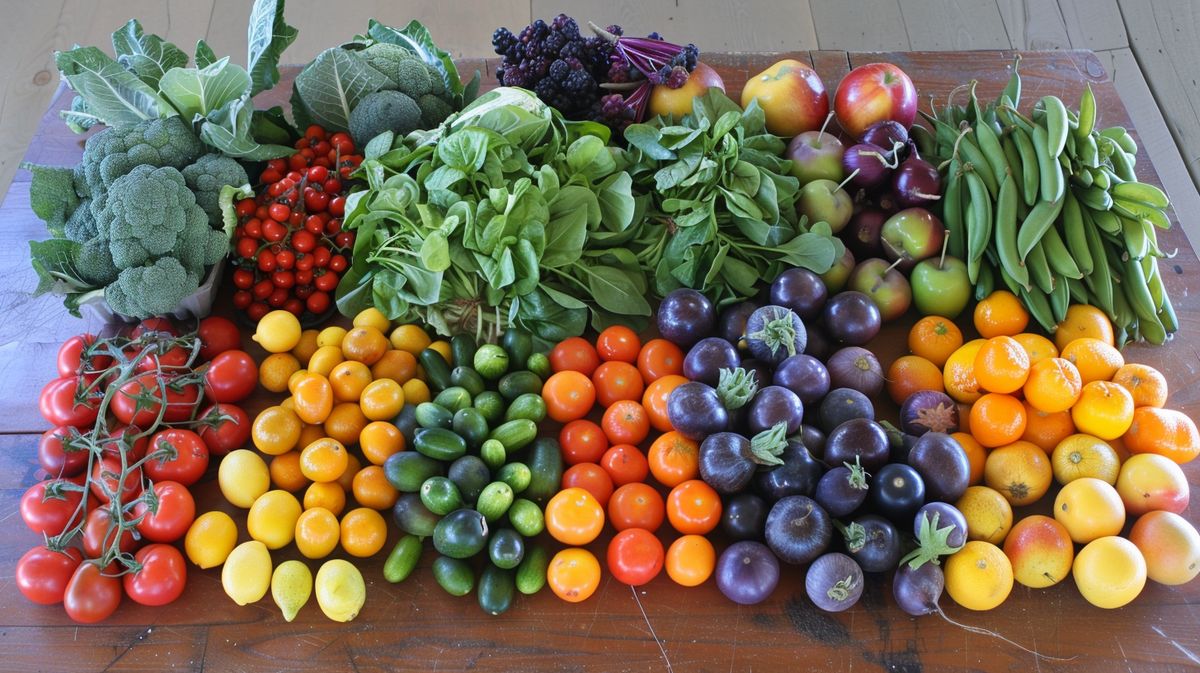
Discover the Benefits of Non-Toxic Foods for a Healthier Lifestyle
Ever wondered how many invisible enemies your apple fights before reaching your mouth? Let’s explore, shall we? Hello to all my fellow explorers, I’m Stella Green, your personal guide on this exhilarating expedition to discover the bountiful world of non-toxic foods. Yes, you heard me right – our everyday meals can be our undercover health allies!
Without any further ado, let’s pay homage to our unsung heroes – the non-toxic foods. This guide will serve as your compass, steering you towards the numerous health benefits these foods offer while helping you identify the real champions amidst the deceptive substitutes.
If your aims are to enhance your health choices, protect your well-being, and turn everyday eating into an exciting adventure, then stick with me, and let’s begin this enticing gastronomic journey together right now.
Unveiling the Magic of Non-Toxic Foods
Diving into a world where food isn’t just a necessity but a delightful journey, you’ll discover how non-toxic choices can transform your health narrative. Let’s embark on this adventure, learning all about what makes certain foods charmingly safe and others, well, a bit dastardly.
Definition of Non-Toxic Foods
Imagine entering a garden where everything is free from wicked witches’ spells—no pesticides, herbicides, or synthetic fertilizers in sight. Non-toxic foods are those pristine goodies that dodge harmful chemicals like a superhero evading villain snares. They’re typically as close to their natural state as possible, bursting with essential nutrients. Think of high-fiber foods, antioxidants as valiant knights, and healthy fats as loyal companions in your dietary kingdom, diligently working to keep you vibrant and healthy.
Importance of Consuming Non-Toxic Foods
Feasting on non-toxic foods is like inviting peace, love, and harmony to your dinner table. These foods help minimize the risk of health pitfalls and support your long-term wellness goals. They’re like the reliable sidekick in your action-packed life, ensuring your hormone systems aren’t thrown off the rails and that your meals are packed with top-notch nutritional value. With non-toxic foods, you’re not just eating; you’re nourishing your body like a true gourmet eco-warrior.
Impact of Toxic Foods on Health
Toxic foods, on the other hand, are the villains of our story. They sneak into your diet disguised as appetizing delights but can lead to all sorts of mischief—indigestion, allergies, and even hormonal chaos. Over time, the habitual consumption of these rogue foods is linked to a host of chronic diseases and cancers. The plot thickens when we consider prenatal exposure to toxins like phthalates, which can usher in serious health troubles, including ADHD, developmental hiccups, and infertility. Clearly, steering clear of these toxic temptations is a heroic move for keeping health disasters at bay.
Understanding the Presence and Dangers of Toxic Chemicals in Food
Ever wondered what lurks in the food you eat? Let’s embark on a journey to unveil some common toxic chemicals found in our food supply and why switching to non-toxic foods might be the best decision you make today.
Phthalates in Food
Ah, phthalates! These crafty little chemicals sneak into your food during processing and packaging, hitching a free ride thanks to their role in softening plastics. Imagine your food wrapped in an invisible plastic hug – not as comforting as it sounds, right?
- Phthalates have been linked to a smorgasbord of health issues, including reproductive problems, plummeting testosterone levels, and neurodevelopmental harm. Talk about a party pooper!
- Pregnant women and children are particularly at risk, prompting the call for safer, non-toxic alternatives to these chemical mischief-makers.
Pesticides and Their Effects
Pesticides! They may sound like helpful farmers’ friends, but they crash the party in your fruits and veggies with a toxic twist.
Long-term exposure to these chemicals? Let’s just say, it doesn’t end with a happy-ever-after.
- Heavy doses of pesticides in conventionally grown produce could spell trouble, potentially leading to cancers, fertility issues, and a medley of chronic diseases. Yikes!
- Even your best efforts at scrubbing and peeling might not evict all pesticide residues. Going organic can be a safer ticket to the non-toxic food wonderland!
Other Harmful Chemicals to Avoid
Ever met a BPA you liked? Me neither! Bisphenol A (BPA) and its not-so-friendly substitutes lurk in canned foods and plastic packaging, ready to play havoc on your health.
- These chemicals aren’t just naughty; they pose significant health risks. Steering clear of them is a smart move!
- Beware the preservatives, synthetic dyes, and contaminants like arsenic in rice or mercury in fish. They aren’t the dinner guests you want.
- A diet heavy in fast food is a surefire way to up your phthalate intake, especially hammering vulnerable communities hard. Time to rethink that next fast-food run?
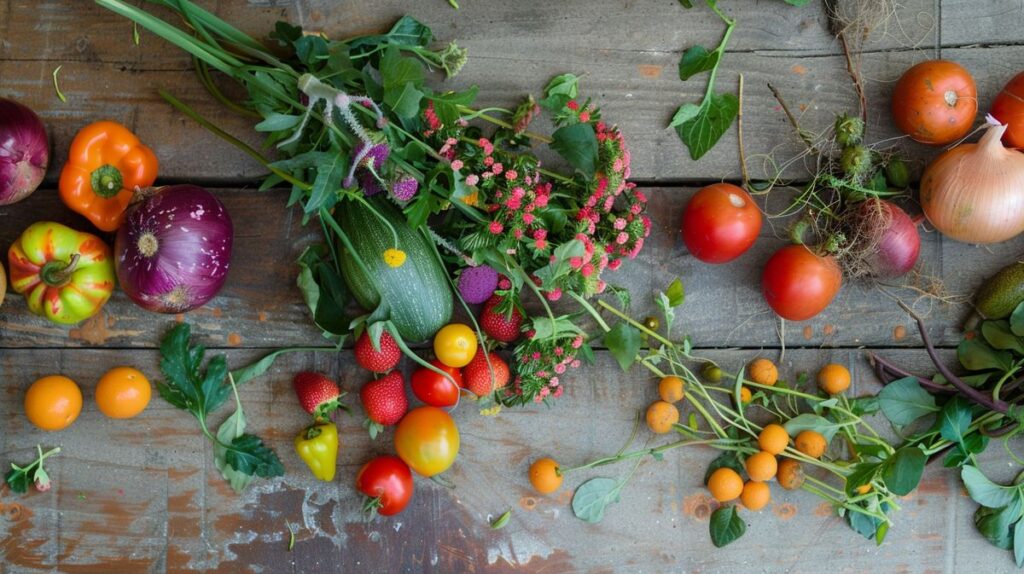
Identifying Non-Toxic Foods
Embark on this thrilling journey to uncover what makes a food truly non-toxic. From understanding organic certifications to scrutinizing ingredient lists, we’ll navigate through the essential markers of clean eating and explore what criteria to prioritize for a toxin-free diet.
Organic Labels and Certifications
Spotting non-toxic foods is like being a food detective—start your investigation with official organic labels and certifications. The gold standard, the USDA Organic label, assures that the food meets stringent criteria, reducing exposure to pesky pesticides and GMOs. Fancy a cheat sheet? Check out the Environmental Working Group’s (EWG) “Clean 15” list, known for featuring produce with the least pesticide residues. Trust me, prioritizing these labels can make your diet a haven of non-toxic foods.
Farming Practices of Food Producers
On this leg of our non-toxic adventure, we venture into the world of farming practices. Producers who embrace organic and sustainable methods are your new best friends. These eco-warriors shun synthetic fertilizers and pesticides, leading to happier ecosystems and safer food for you! Doing a bit of sleuthing into a producer’s farming methods can reveal their dedication to non-toxic standards and the planet. It’s worth the effort, aiding you in choosing foods that champion both health and sustainability.
Reading Ingredient Lists
Next up, let’s play the ingredient detective game! Reading ingredient lists is your secret weapon in selecting non-toxic foods. Go for foods that are free from preservatives, synthetic dyes, and artificial additives. Think of it like finding a hidden treasure—opt for items with simple, familiar ingredients and dodge those with long, convoluted lists. By making such savvy choices, you’re steering clear of harmful substances and treating yourself to a diet of pure, minimally processed goodness!
The Role of Organic Farming in Non-Toxic Foods
Benefits of Organic Farming
Imagine sinking your teeth into a juicy, organic apple – it’s like a crunchy bite of pure goodness!
Organic farming is at the heart of non-toxic foods, waving goodbye to those pesky synthetic pesticides and genetically modified organisms (GMOs). Hurrah! This method ensures our favorite munchies are free from harmful chemicals, keeping our bodies and minds happy and healthy.
Plus, organic farming isn’t just about what’s on your plate; it’s a whole ecosystem party! By promoting ecological balance and biodiversity, it creates a thriving environment where beneficial insects, plants, and soil microorganisms can dance along. Think of it as nature’s way of detoxing – a detox that even your garden gnomes would approve of!
And let’s dish on the freshness! Organic goodies often sport a ‘just-picked’ vibe, bursting with higher levels of vitamins, minerals, and antioxidants. So, you’re not just filling your tummy; you’re supercharging it with a nutrient-packed punch! Now, that’s what I call a win-win for your non-toxic diet.
Comparison Between Organic and Conventional Foods
Alright, let’s play a game of spot the difference, shall we? First up, organic foods. These beauties are fresher, often hitting the shelves soon after harvest with a taste that’s as vibrant as your Aunt Sally’s laugh. Without preservatives, they may not last as long, but who wants preservatives when you can have a fresh fiesta in your mouth?
Now, onto nutrition. Organic foods are like the overachievers of the food world. Picture broccoli flexing its muscly vitamins – higher in antioxidants, Vitamin C, iron, magnesium, and phosphorus. Studies suggest they’re practically bursting with more goodies than their conventional counterparts. It’s like comparing a vibrant fruit salad to a soggy cereal bowl.
But hold on, there’s more. Conventional foods often come with unwanted plus-ones: pesticide residues and GMOs. Yup, even after a thorough scrub-a-dub-dub, these hitchhikers can linger. For anyone prioritizing non-toxic foods, this can be a bit of a party pooper, posing long-term health risks. So, the next time you’re out grocery shopping, think of it as choosing between a toxic date and a non-toxic soulmate. Your move, dear reader!
Practical Tips for Choosing Non-Toxic Foods
Here’s a delightful journey into the world of non-toxic foods. Get ready to transform your grocery shopping and kitchen habits with fun and flair. Let’s dive into the charming world of fresh, local, and healthier food choices!
Shopping Tips for Non-Toxic Foods
- Buy Fresh and Local: Picture yourself at a bustling local farmers’ market, where the carrots almost greet you with a “neigh.” Local farmers often use fewer synthetic substances, making their products safer for your table. Buying fresh and local produce minimizes your exposure to those pesky pesticides and harmful chemicals.
- Look for Organic and Non-GMO Labels: These labels are like waving banners of health! Organic and non-GMO certifications mean your food is grown with love and without synthetic pesticides or genetically modified organisms. It’s like wearing a badge of honor in your quest for non-toxic eats.
- Utilize EWG’s Dirty Dozen and Clean 15 Lists: The Environmental Working Group (EWG) has done the homework for you. Their annual lists of the most and least pesticide-contaminated fruits and veggies are golden. Focus on buying organic versions from the Dirty Dozen list, and you won’t have to worry about nasty toxins sneaking into your meals.
Cleaning Conventional Produce
Even when you can’t always score organic, cleaning your produce like a pro can help ditch those chemicals. Let’s turn cleaning into a stress-free, toxin-free delight!
- Rinse Thoroughly Under Running Water: Give every fruit and veggie a refreshing shower. Running water helps whisk away surface residues and pesticide traces. Yes, even that cantaloupe appreciates a good rinse!
- Use a Brush to Scrub Firm Produce: Think of potatoes and carrots as rough-and-tumble adventurers. They require a good scrubbing to bid adieu to dirt and those clingy pesticide residues that rinsing alone might miss.
- Consider Using a Vinegar Solution: Ah, vinegar—the unsung hero! A mix of 1 part vinegar to 3 parts water is like a secret potion for your produce. Soak and clean your bounty to banish more residues than water can, gifting you a safer, more scrumptious meal.
Budget-Friendly Strategies
Who says eating non-toxic has to break the bank? Here are some sparkling strategies to keep your wallet happy while filling your plate with pure goodness.
- Buy Seasonal Produce and in Bulk: There’s nothing quite like a cornucopia of fresh, seasonal fruits and veggies. They’re not only more affordable but also brimming with flavor. Stock up in bulk during peak seasons to get the best deals and ensure an ample supply of non-toxic foods.
- Prioritize Spending on High-Risk Foods: Your budget is a trusty sword in the battle against toxins. Spend wisely on organic dairy, meat, and items from the Dirty Dozen list. These are most likely to harbor harmful chemicals, so go organic to shield yourself from unwanted exposure.
- Grow Your Own Herbs and Vegetables: Imagine plucking basil and tomatoes right from your garden—fresh, fragrant, and free of toxins. Growing your own herbs and veggies is like a magical portal to a bounty of non-toxic foods. Plus, it cuts costs and deepens your connection to what you eat.
Non-Toxic Foods for Children’s Health
In this section, we uncover the magical world of non-toxic foods and their role in safeguarding your child’s health. From dodging harmful elements to enhancing growth and development, let’s journey together through the land of wholesome, worry-free nutrition.
Reducing Exposure to Harmful Elements
- Avoid High-Mercury Fish: Ahoy, seafood lovers! Beware of tuna and swordfish – these finned fellows are sneaky mercury carriers that can harm your kiddo’s developing nervous system. Instead, invite the more benevolent salmon, sardines, and trout to your dinner parties. They’re the fishy friends you want at your table!
- Choose USDA Organic Produce: When shopping for fruits and veggies, look for the golden badge of USDA organic. Those certified treasures come without the nasty pesticides like chlorpyrifos, making meal times a safer delight. It’s like giving a royal treatment to your child’s diet, banishing those synthetic chemicals to the kingdom of yuck.
- Mixed Diet for Safety: Variety is the spice of life, and it’s a hero for health too! Mix up your kid’s diet with a rainbow of fruits, veggies, proteins, and grains. Not only will it bring a burst of flavors, but it also helps dodge the villainous toxins lurking in any single food source. For more tips on sustainable living, check out our guide on how to be eco friendly. A mixed diet is your secret weapon for a balanced and safe nourishment adventure.
Promoting Healthy Development
- Supporting Growth: Non-toxic foods are like glittering treasure chests brimming with nutrients. Packed with vitamins, minerals, and antioxidants, these wholesome goodies support your child’s growth, fueling their little adventures and bolstering their immune defenses. Think of it as charging up their energy levels for the wonders of everyday play.
- Reducing Neurodevelopmental Risks: Avoiding foods laced with harmful chemicals can be a mighty shield against neurodevelopmental risks like ADHD and cognitive troubles. Embrace brain-boosting delights such as leafy greens, berries, and nuts. They’re not just meals; they’re brain-health superheroes ready to defend your child’s cognitive castle.
-
Encouraging Healthy Habits: By introducing non-toxic foods early on, you’re sowing the seeds of lifelong healthy habits. Your little one learns to savor natural flavors and appreciate balanced meals, creating a foundation of wellness that lasts a lifetime. For instance, you might wonder, is Blueland non-toxic for household use?
____ It’s like training their taste buds to become connoisseurs of wholesome eating adventures!
Health Benefits of Non-Toxic Foods
Diving into the wondrous world of non-toxic foods reveals a treasure trove of health benefits that promise to keep our bodies dancing with joy and vitality. From warding off pesky chronic diseases to boosting immune system superpowers, these delights are more than just good for you – they’re game changers!
Preventing Chronic Diseases
Consuming non-toxic foods plays a crucial role in the prevention and potential reversal of chronic diseases such as diabetes and hypertension. Imagine your meals as little knights in shining armor, rich in essential nutrients that stabilize blood sugar levels and blood pressure. By keeping harmful chemicals at bay, non-toxic foods cheer for your heart health and wage war on inflammation, key in fending off chronic ailments, and keeping your wellness on a high note.
Boosting the Immune System with Antioxidants
Non-toxic foods are often packed with powerful antioxidants, which are vital in strengthening the immune system. Picture antioxidants as tiny, superhero friends found in dark chocolate, berries, and goji berries, swooping in to fend off illnesses and fight infections. Lycopene, another hero antioxidant found in tomatoes and watermelons, joins the pack with cancer-fighting powers. Adding these non-toxic delights to your diet means you’re equipping your body with a robust, illness-busting defense team.
Healthy Fats for Reducing Inflammation
Aha, meet the fabulous fats! These non-toxic food champions reduce LDL cholesterol and inflammation. Our star players include olive oil, avocados, fish, chia seeds, and walnuts. These fats are like brain food, hormone helpers, and all-around body boosters. Including them in your diet is akin to inviting a harmonious symphony of nutrients that battle inflammation and uplift your overall health.
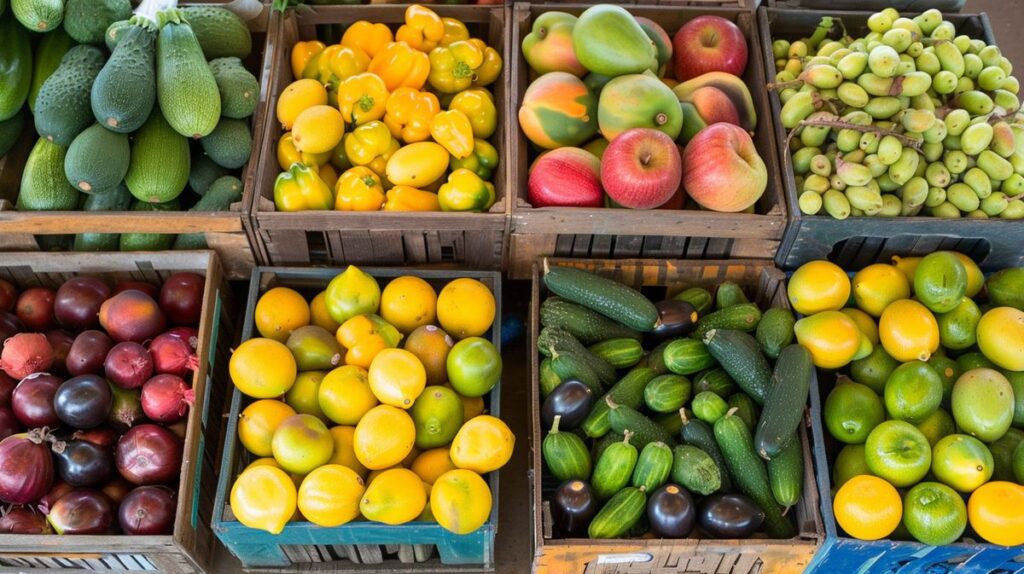
Non-Toxic Dietary Lifestyles
Exploring Different Non-Toxic Diets
Picture a world where every bite you take is a ticket to health and vitality, free from any nasty chemicals. That’s the universe of non-toxic dietary lifestyles! These diets are like trusty sidekicks, helping you dodge harmful substances by championing whole, minimally processed foods. Let’s dive into some of these fab options:
- Raw Vegan Diet: Imagine feasting on a colorful parade of uncooked, plant-based foods. This diet is all about preserving those naturally occurring enzymes and nutrients. By avoiding processed and heated foods, devotees reap the full magical benefits of raw, non-toxic foods.
- Organic Diet: It’s not just a diet; it’s a love letter to Mother Earth. Think of it as going steady with certified organic foods that say “no thanks” to pesticides, synthetic fertilizers, and GMOs. These goodies are grown sustainably and are packed with essential nutrients, totally free from harmful chemicals.
- Paleo Diet: Transport yourself to the ancient times when our ancestors roamed the earth. This diet is a blast from the past featuring whole foods like fruits, vegetables, nuts, and lean meats. It ditches processed foods, grains, and dairy for a cleaner, more natural vibe.
- Whole Foods Diet: Envision a realm where foods are celebrated in their most natural state. This diet is all about indulging in fresh fruits, veggies, whole grains, and lean proteins, bidding farewell to processed and refined options. Ideal for overall health and wellness!
By mixing and matching elements from these diets, you can create a vibrant, balanced nutritional routine that keeps non-toxic foods front and center, helping you live your best, healthiest life.
The Concept of Clean Eating
Oh, the charm of clean eating! It’s more than just a diet; it’s a delightful crusade for non-toxic foods. By spotlighting whole or real ingredients, clean eating strives to amplify your health and wellness with pure, natural goodness.
- Whole Foods Focus: Clean eating is like a shout-out to unprocessed, whole foods that stay true to their natural essence. We’re talking fruits, veggies, whole grains, lean proteins, and healthy fats—all in their splendid, untampered glory.
- Avoid Refined Foods: Think of it as reducing the clutter. This approach nixes refined sugars, flours, and processed ingredients. The star players? Foods in their most authentic form, packing a nutrient-dense punch with fewer questionable additives.
- Natural Form Promotion: Clean foods are best enjoyed fresh, raw, or just minimally cooked. By keeping the vitamins, minerals, and other vital nutrients intact, you get the full spectrum of non-toxic food benefits.
Embracing clean eating feels like a warm hug for your body. It enhances nutrient absorption and minimizes exposure to those pesky harmful chemicals, all while promoting a wholesome, feel-good lifestyle.
Non-Toxic Food Storage and Cookware
Safe Storage Solutions
When it comes to storing non-toxic foods, the choice of container is crucial. Glass and stainless steel containers are excellent options because they do not leach harmful substances into food.
- Glass Containers: These are non-reactive and free from chemicals, making them ideal for storing all kinds of foods, including acidic and liquid items. They are also durable and can go from freezer to oven safely.
- Stainless Steel Containers: Robust and long-lasting, stainless steel containers are perfect for everyday use and are particularly good for storing dry goods and leftovers. They are resistant to staining and do not retain food odors.
- Food-Grade Silicone: For flexible and space-saving solutions, food-grade silicone containers are a great choice. They are safe for high temperatures, making them suitable for both refrigeration and microwaving.
Plastic containers, even those labeled BPA-free, should be avoided to minimize chemical exposure risks. Plastics can still contain other harmful substances that might migrate into food, especially when heated.
Choosing Non-Toxic Cookware
Cooking with safe materials helps keep non-toxic foods free from harmful contaminants. Here are some best options:
- Stainless Steel: This versatile material is ideal for everyday cooking. It is durable, non-reactive, and can handle high temperatures without releasing toxins.
- Glass: Safe and non-reactive, glass cookware is great for baking and microwaving. It doesn’t absorb flavors or odors and provides an inert surface that doesn’t interact with food.
- Ceramic: Completely free from metals, ceramic cookware offers a non-stick surface without the health risks associated with traditional non-stick coatings. Ensure it is from reputable brands to avoid lead and cadmium contamination.
- Cast Iron: This rugged material is excellent for high-heat cooking. When properly seasoned, cast iron provides a natural non-stick surface and can even add beneficial iron to your diet. However, it requires regular maintenance to prevent rust.
Non-stick surfaces, especially those with Teflon, should be avoided as they can release harmful chemicals when overheated. Always check that cookware is free from harmful elements like lead and cadmium to maintain the purity of your non-toxic foods.
Environmental and Sustainability Benefits
Embark on a whimsical journey to explore how non-toxic foods can pave the way for a healthier, more sustainable planet! 🌍✨
Reducing Pesticide Pollution
Picture this: You’re sipping a refreshing glass of water in a world where streams, rivers, and groundwater are free from harmful pesticide runoff. Sounds dreamy, right? Embracing non-toxic foods, especially those grown through organic farming, helps make this idyllic vision a reality. 🌿
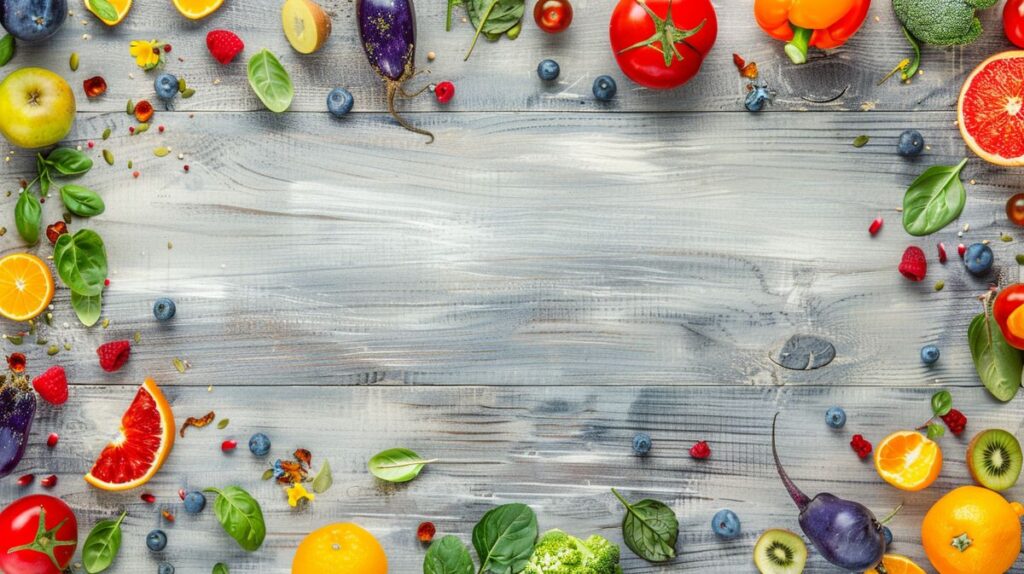
Unlike conventional farming, organic practices exclude synthetic pesticides. That means fewer chemicals sneaking into your local water supply. Bye-bye, nasty toxins!
Additionally, the noble non-toxic foods champion a cleaner ecosystem, protecting our trusty pollinator pals like bees and butterflies. 🐝✨
By eliminating toxic pesticides, we’re not just sprucing up our soil health; we’re literally nurturing a bustling micro-ecosystem beneath our feet! Curious about whether Native shampoo helps with dandruff issues? Check out our detailed review on does Native shampoo help with dandruff.
Imagine tiny soil creatures throwing a party, celebrating their vibrant, chemical-free home. 🌾
The bottom line? A world brimming with non-toxic foods contributes to cleaner air, water, and soil. The planet heaves a sigh of relief, and so can you! 🌍💚
Supporting Sustainable Agricultural Practices
Non-toxic foods are like the superheroes of the agricultural world, always ready to swoop in and save the day! Their secret weapon? Sustainable agricultural practices that bolster ecosystem health and encourage a rich variety of life.
Organic farming methods pride themselves on shunning harmful chemicals. Instead, they foster a diverse array of plants, animals, and microorganisms, creating a resilient farming system that’s positively buzzing with life. 🌱🐞
These practices don’t stop there. They emphasize the use of renewable resources, with organic farms often employing crop rotations, composting, and natural fertilizers to keep the soil happy and rich. 🧑🌾✨
Ever heard of soil conservation techniques like cover cropping and reduced tillage? These savvy methods ensure soil integrity and fertility, practically giving farming lands a spa day. 🧖♂️
If we look at the grand picture, the production of non-toxic foods under these sustainable practices leads to a more equitable and environmentally friendly food system. Lower carbon footprints, happier farmers, and a brighter future for farming lands—what’s not to love? 💚🌍✨
The Wholesome Magic of Non-Toxic Foods
Summary of the Importance and Benefits of Non-Toxic Foods
Ah, non-toxic foods—think of them as the charming heroes of the food world, swooping in to save the day for our health and well-being. By choosing groceries free from dastardly villains like pesticides, synthetic fertilizers, hormones, and antibiotics, we give ourselves a fighting chance against chronic diseases, as organic products reduce public health risks to farm workers, their families, and consumers by minimizing their exposure to toxic and persistent chemicals on the farm and in food, the soil in which they work and play, the air they breathe, and the water they drink. Learn more about the health benefits of organic foods here.
It’s like building an immune system with the vigor of a superhero squad! Plus, non-toxic foods are brimming with higher nutritional value and keep those pesky hormone disruptors at bay. And let’s not forget, these delightful edibles are also environmental champions, ensuring our planet remains a green sanctuary.
Encouragement to Make Informed Choices for Health and Environment
Ready to channel your inner food detective? Making savvy choices about what lands on your plate can do wonders for both your health and our dear Earth. Opting for organic and sustainably sourced goodies means you’re backing farming practices that keep our environment radiant.
Know your labels and certifications—it’s like having a treasure map to non-toxic jewels! Prioritize products that keep toxic exposure minimal, like those gems listed on EWG’s Clean 15. It’s about understanding the journey your food takes from farm to fork and making decisions that create ripples of positivity for you and the ecosystem.
Call to Action for Further Educating Oneself and Supporting Non-Toxic Food Sources
Embark on your non-toxic food adventure! Keep feeding your curiosity about the magical benefits of non-toxic foods and be the shining beacon of knowledge in your community. Support your friendly neighborhood farmers’ markets, pick products with organic badges, and cut down on highly processed munchies.
Small steps can lead to grand transformations. By championing non-toxic food sources, you’re not just changing your lifestyle—you’re sowing seeds for a healthier future for all. Let’s rally together and grow a garden of good health and environmental harmony!
FAQs
What are non-toxic foods?
Picture a garden brimming with vibrant veggies, fruits singing merrily from the trees, and grains dancing in the wind! That’s the world of non-toxic foods. These are the glorious edibles free from nasty chemicals like pesticides, synthetic fertilizers, hormones, and antibiotics. Think of them as the superheroes of your diet: whole, minimally processed goodies that are nutrient-packed and eager to turbocharge your health and well-being!
Why is it important to eat non-toxic foods?
Oh, the marvels of munching on non-toxic foods! Imagine shielding your body like a knight in shining armor! Eating non-toxic foods is the secret weapon in reducing the risks of chronic diseases. By ditching harmful chemicals, you’re giving your body a break from the mayhem that leads to those pesky long-term health problems. It’s like gifting yourself a lifetime of health and happiness, one bite at a time!
How can I identify non-toxic foods when shopping?
Shopping for non-toxic foods is like a thrilling treasure hunt! Keep your eyes peeled for organic labels and certifications – they’re the shimmering clues on your path! Dive into ingredient lists and be the detective that spots harmful additives. And don’t forget trusty guides like EWG’s Dirty Dozen and Clean 15, your compass to prioritize the best organic purchases. Shopping has never been so adventurous!
Are organic foods always non-toxic?
Here’s a twist in our tale: Organic doesn’t always mean non-toxic! Organic foods score points for reducing harmful chemicals, but beware, toxins might sneak in through packaging and processing. Stay vigilant, dear reader, even among the organic ranks. Your quest for non-toxic perfection requires a keen eye and a sprinkle of caution!
What are the health benefits of eating non-toxic foods?
Hold on to your hats, for the benefits of non-toxic foods are aplenty! Munching on these wholesome wonders can help fend off chronic diseases, give your immune system a powerhouse boost, and keep inflammation at bay. They’re the secret recipe for overall well-being and healthy development, especially for the little ones. It’s like having a health fairy sprinkle magic on your meals – pure enchantment!
